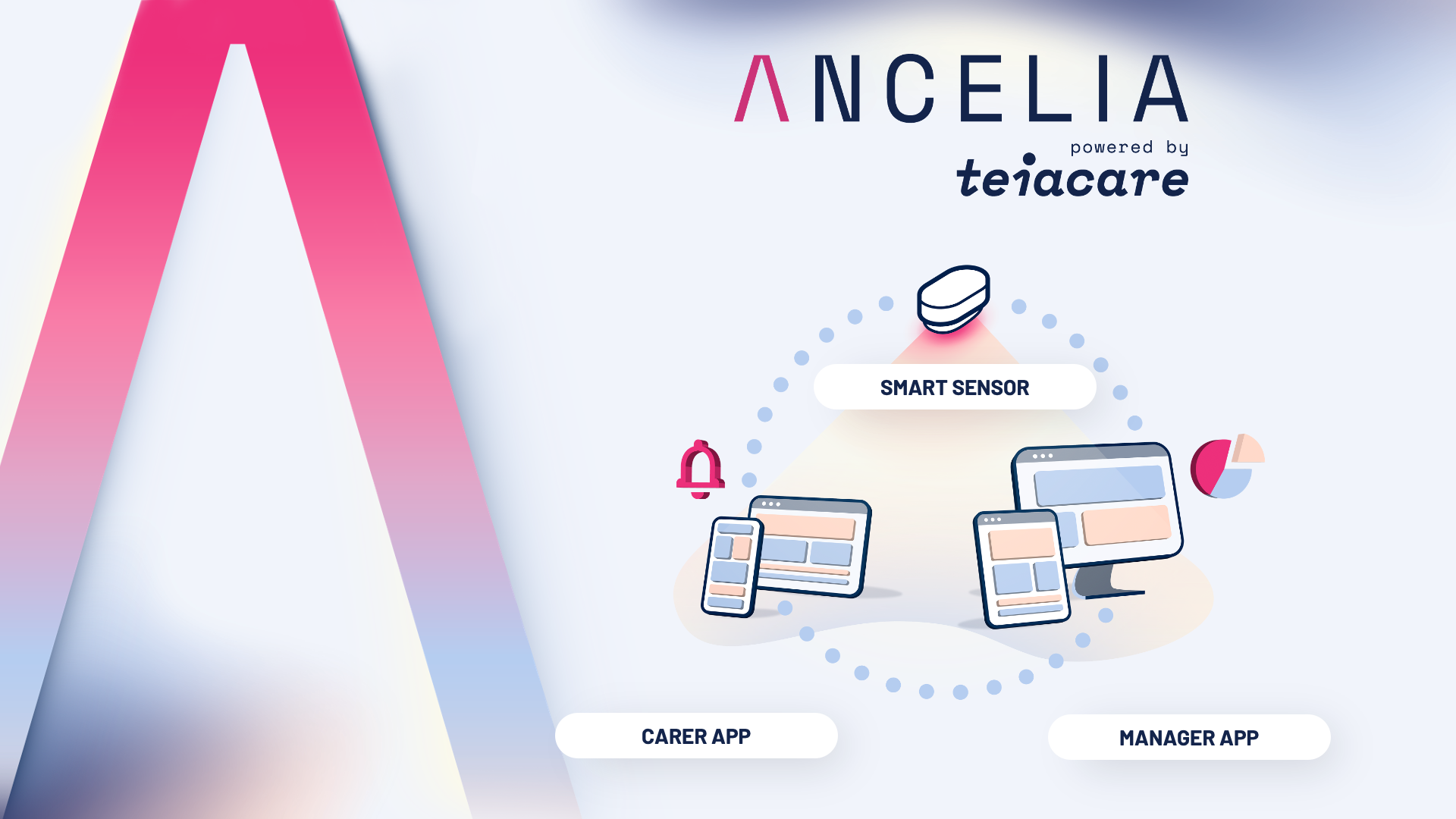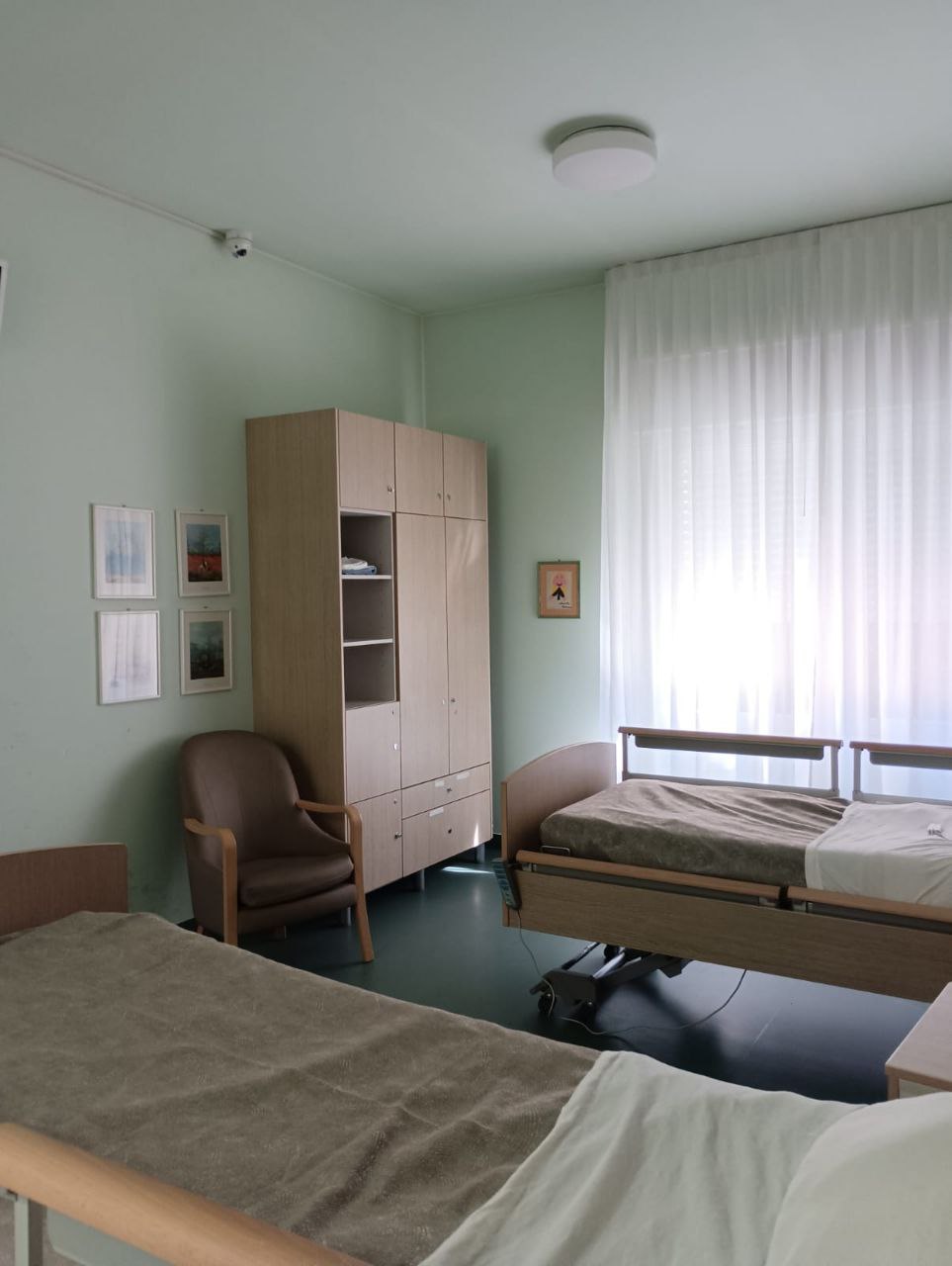DigiCare4CE pilot action in Italy (ISRAA project partner)
Implementing intelligent sensors in the dementia care unit
ISRAA project partner tested TeiaCare's ANCELIA technology to improve care for people with moderate to severe dementia. The solution, consisting of sensors and an app, supports staff in caring for residents.

Overview
The rising demand for long-term care services and the persistent staff shortages in nursing homes make it difficult for facilities to meet high care needs. As staff shortages become a long-term issue, finding solutions is crucial to ensuring adequate care for older people. In this regard, digital tools designed to assist healthcare professionals could offer vital support to the staff.
As part of ISRAA’s pilot initiative, ANCELIA technology has been implemented at the “Nucleo Sole” of the “Rosa Zalivani Institute”, a specialized care unit dedicated to women with moderate to severe dementia. Sensors have been installed over the 32 beds of the unit to improve the work of care staff, especially during the night shifts. The goal is to enhance the daily operations of the care staff by amplifying their resources and reducing adverse events such as falls. Furthermore, the solution aims to support the decision-making process by providing managers with objective reports on residents’ conditions, including their sleep quality and level of agitation.
Decision-making process
The technology selection process followed a co-creation process among the project team and various internal stakeholders such as the manager, the care coordinators, the nursing staff and the social and health workers. During this phase, the elements that constitute the greatest challenges for the care workers emerged. Examples include excessive care loads, difficulties in managing wandering, falls, and high staff turnover. Starting from the needs that emerged, ISRAA initiated a public tender procedure, and ANCELIA solution was identified.
Components of the Digital Solution
The pilot initiative has implemented the ANCELIA technology, developed by TEIACARE company, a solution based on advanced Artificial Intelligence algorithms. The system consists of three components:
- Optical sensor: Installed above each bed of the care unit, it automatically collects information on resident’s condition.
- Carer App: It receives real-time notifications, such as the resident’s presence or absence in the bed, alerts on the need to change position, and warnings about the risk of falling.
- Manager App: This app allows to set personalized alerts and compiles reports to support the decision-making process.

Implementation process
Following the decision-making phase, the implementation took place in multiple phases:
- Preparation phase
- Meeting with the workers’ trade union representatives to present the technology and its impact on workers’ activities
- Infrastructure adjustments
- Training sessions for care staff, care coordinators and managers.
- Pilot phase
- Initial overnight support by the technology provider
- Incremental approach adopted: gradual activation of the diverse features of the solution
- Regular update meetings among project managers, care coordinators and the tech company.
- Regular collection of feedback
- Assessment of the pilot implementation through questionnaires
Impact on Care Processes
The technological solution has proven to have a positive impact on the work routine of the care staff, especially during the night shifts, positively affecting the detection of falls or wondering and optimising their working time through virtual or targeted accesses to rooms. By providing additional data, care managers have combined their competences, data from the management system and data from the Manager App to analyse residents’ conditions, favouring a more personalized intervention. The App supported the detection and analysis of agitation, the identification of potential factors influencing agitation and the decrease in the use of bed rails.
Results
The feedback from the care staff is overall positive as virtual monitoring of seniors’ rooms allowed them to have greater oversight of the entire care unit. Staff reported a greater sense of security and improved quality of life for residence, enhancing response times in critical situations. Moreover, sharing objective data provided by the solution with family members helped build a relationship of trust. They perceived the facility is committed to innovation to improve the quality of care provided.
Project Timeline & Participants
- Pilot duration: April 2024 - March 2025.
- Participants: Primary care assistants, nursing staff, care coordinator, manager of the facility, IT department, Innovation and development department, technology provider (TEIACARE)